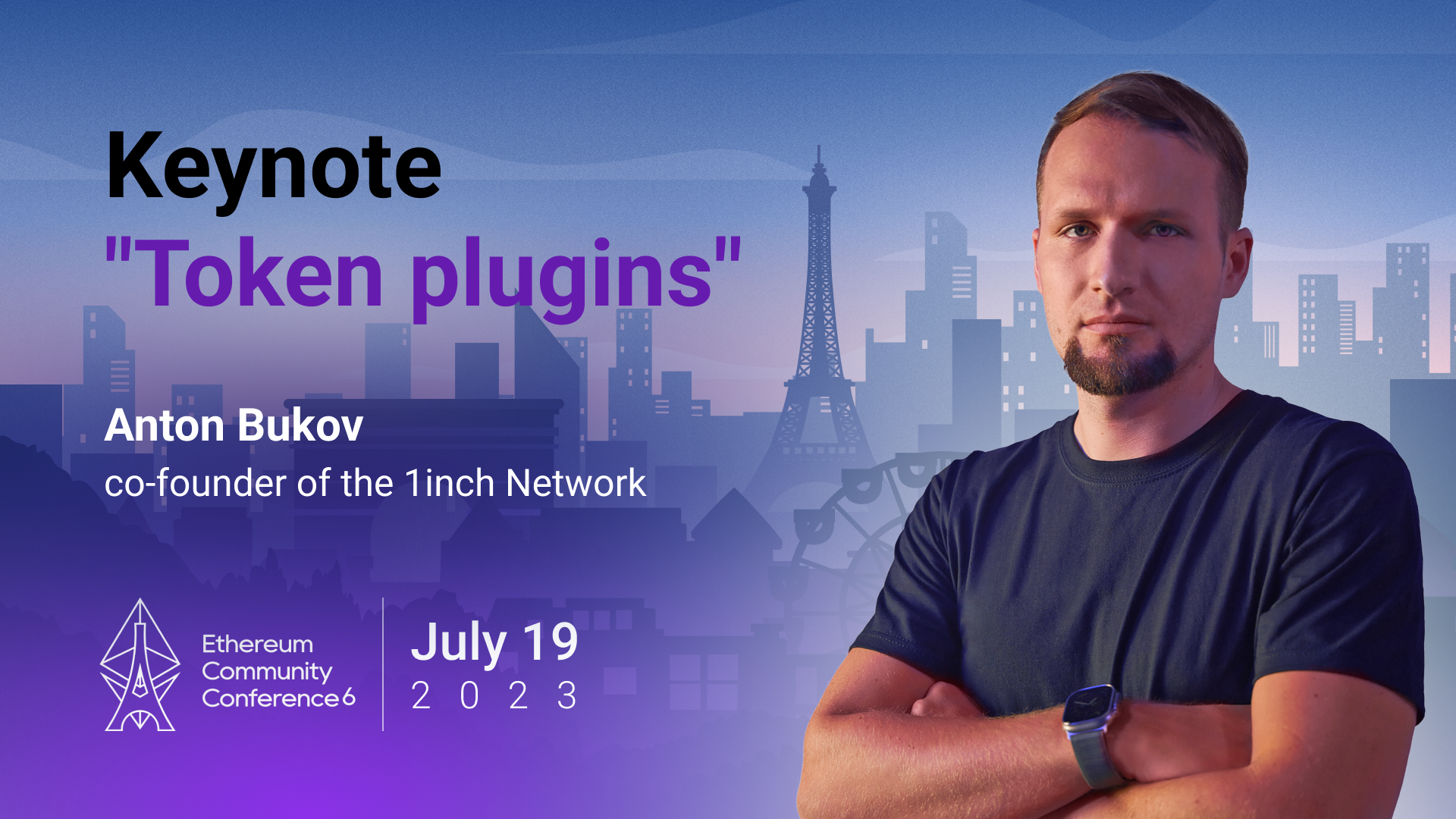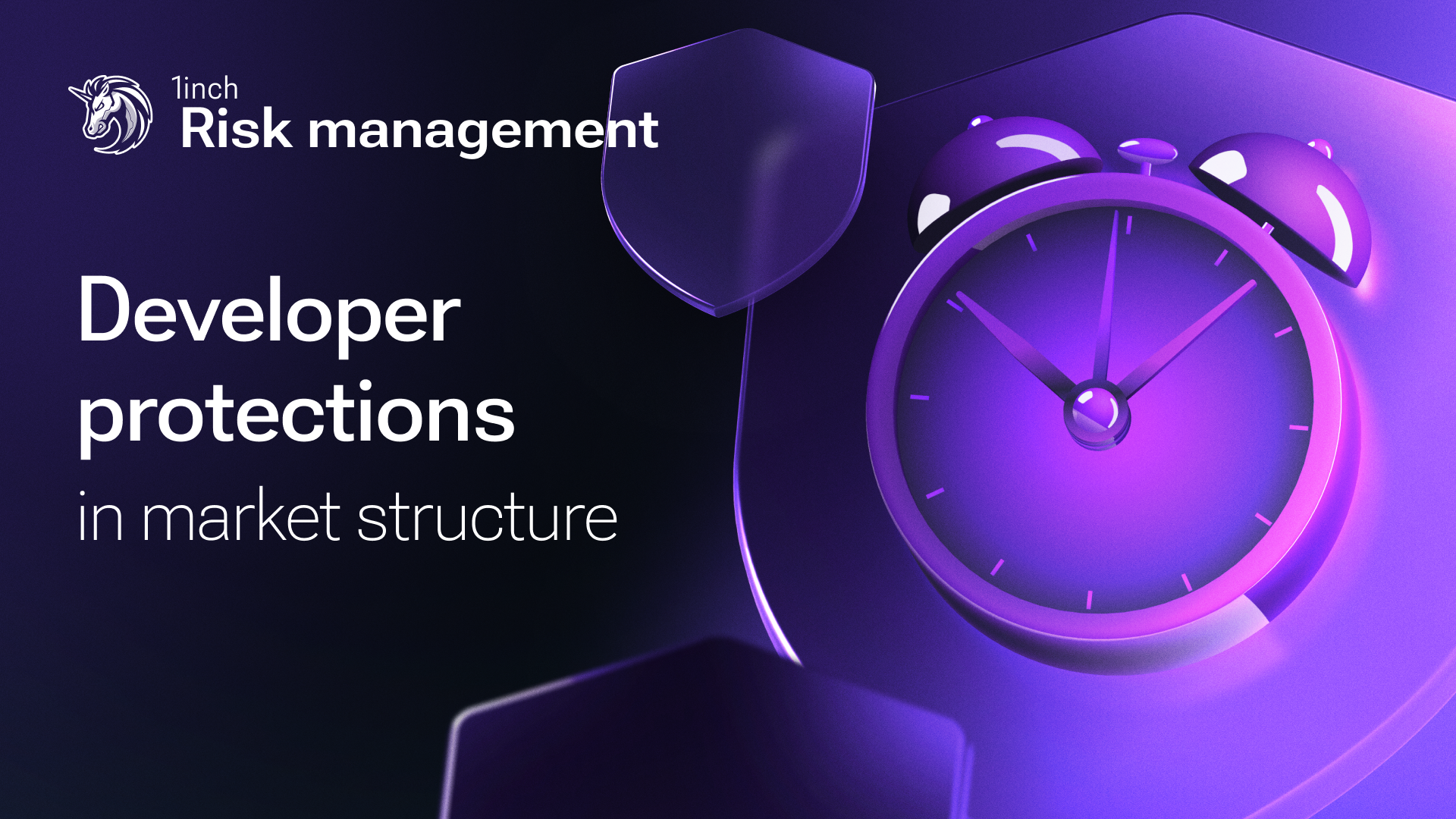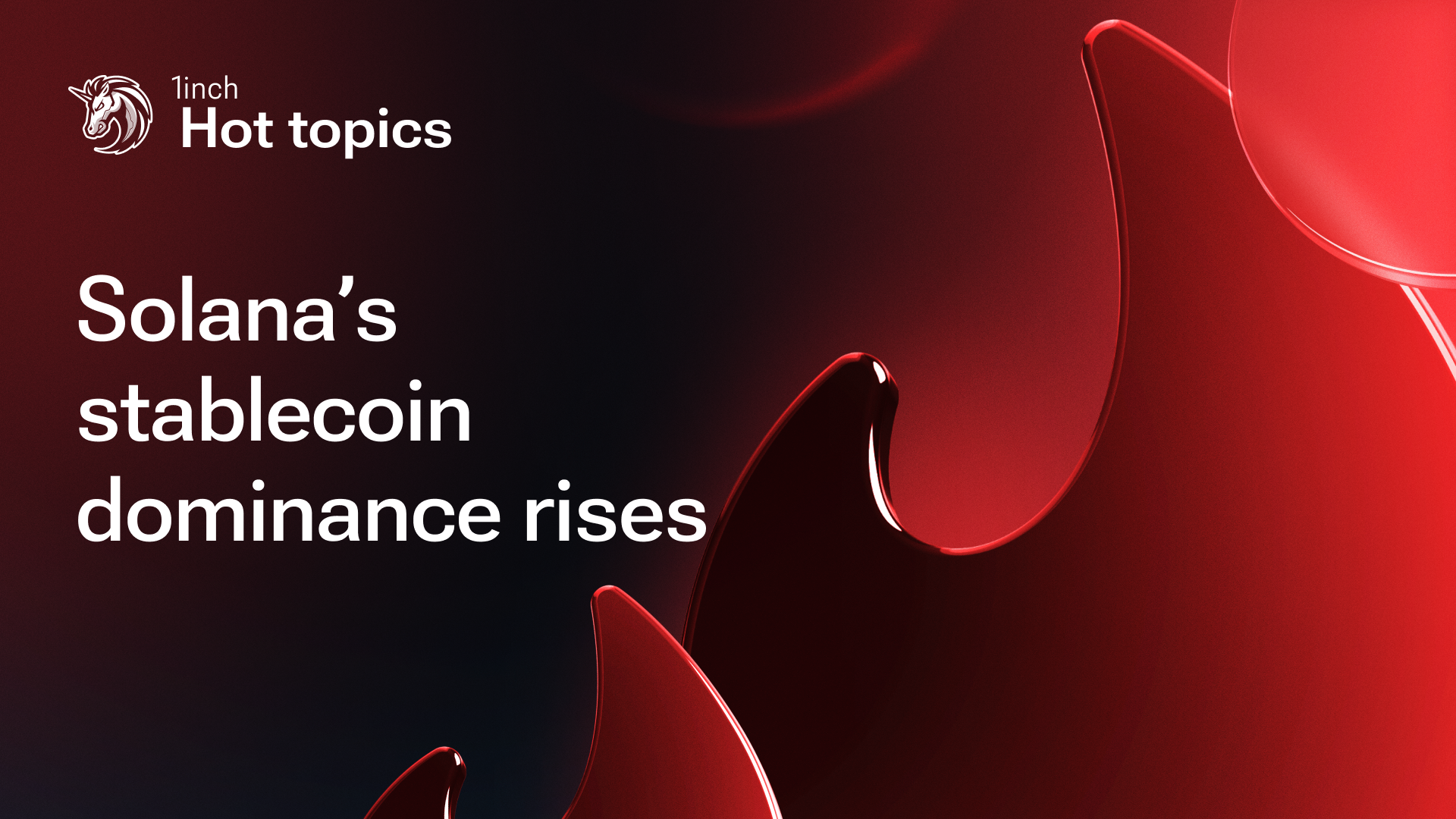1inch's Anton Bukov explains token plugins

On July 19, 1inch co-founder Anton Bukov took the stage at EthCC in Paris to introduce the concept of token plugins. This post features the main highlights of his talk.
According to Anton, the newly invented concept has the potential to dramatically change the DeFi space in the coming years.
Token plugins are ERC20 extensions that allow token holders or liquidity providers to extend the possibilities of their assets by connecting to onchain smart contracts and notifying them of user balance changes.
Wallets that hold pluginable tokens can basically “plug in to plugins,” they can add some of those plugins. The only limitation is the number of plugins per user that could be added simultaneously.
Plugins can track balance changes, non-participant balances and addresses considered as zeros.
“The development of these plugins is fully permissionless,” explained Anton. “Anyone can develop and deploy plugins and offer users to connect to them.”
One good thing about these plugins is that they are risk-free. As Anton put it, “in the very worst case, a plugin can eat a lot of gas, but it can’t steal or lock your assets because there are no approvals for transfers.”
Anton outlined two most promising use cases for token plugins, farming and onchain delegation, and added that he expects more token plugins to be invented.
In farming, you would have an AMM with multiple tokens, and this AMM’s liquidity provider (LP) token would be plugin-enabled. Then, any liquidity provider would be able to simultaneously plug into multiple farms in a risk-free way.
“Previously, when you provided your tokens to a farm, you had to trust the farm,” Anton noticed. “With token plugins, you just permissionlessly plug into multiple farms.”
Meanwhile, a delegation plugin would hold delegated balances. “Holders of a plugin-enabled token would be able to plug into a delegation plugin and delegate their balances to other users,” Anton explained. “And the plugin would store delegated balances.”
This option would work for various types of onchain governance or any other similar logic.
“Basically, it’s one hundred lines of code that enable the next generation of incentives and much more,” Anton concluded. “I can’t wait to see what developers can do with this new DeFi primitive.”
You can also watch a full video of Anton’s talk here.




























